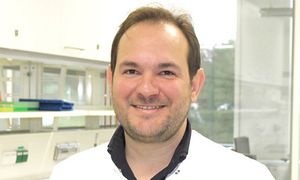Pathomechanisms of Immunosenescence in the post-myocardial infarction healing response (A3)
Immunosenescence and T-Lymphozyten
Life expectancy has risen steadily over the past century, as has the occurrence of age-related diseases, such as MI and heart failure (HF). Aging is often accompanied by increased low-grade chronic inflammation and accumulated interferon-gamma (IFN-γ)-producing effector T-cells with proinflammatory and cytotoxic functions. These systemic alterations in the aging T-cell compartment impact myocardial physiology, individual susceptibility to heart diseases and long-term prognoses.
Rationale and aims
Our overarching hypothesis is that the immunosenescence profile, marked by clonal expansions of IFN-γ-pro- ducing T-cells and a decline in the naïve T-cell pool, impacts the post-MI healing potential and accelerates the development of ischemic heart failure.
Approach
Herein, we will (a) assess the roles of expanded IFN-γ-producing T-cells in driving age-related myocardial inflammation and their impacts on post-MI responses in the elderly, (b) seek to elucidate the antigen specificities of the IFN-γ-producing T-cells that undergo clonal expansions in the aging/infarcted heart and (c) explore how immune senescence induced by infections with common pathogens affects the post-MI repair capacity.
Significance and outlook
Aging is an inevitable process, but the pace and intensity at which immunosenescence progresses can largely vary among subjects. Thus, assessing T-cell senescence status in patients with heart disease might offer valuable diagnostic and prognostic information.
Anschrift
Medizinische Klinik und Poliklinik I, Universitätsklinikum Würzburg, Zentrum für Innere Medizin (ZIM), Oberdürrbacher Straße 6, Haus A3, 97080 Würzburg, Deutschland
Deutsches Zentrum für Herzinsuffizienz Würzburg | Comprehensive Heart Failure Center | Am Schwarzenberg 15 | Haus A15 | 97078 Würzburg




